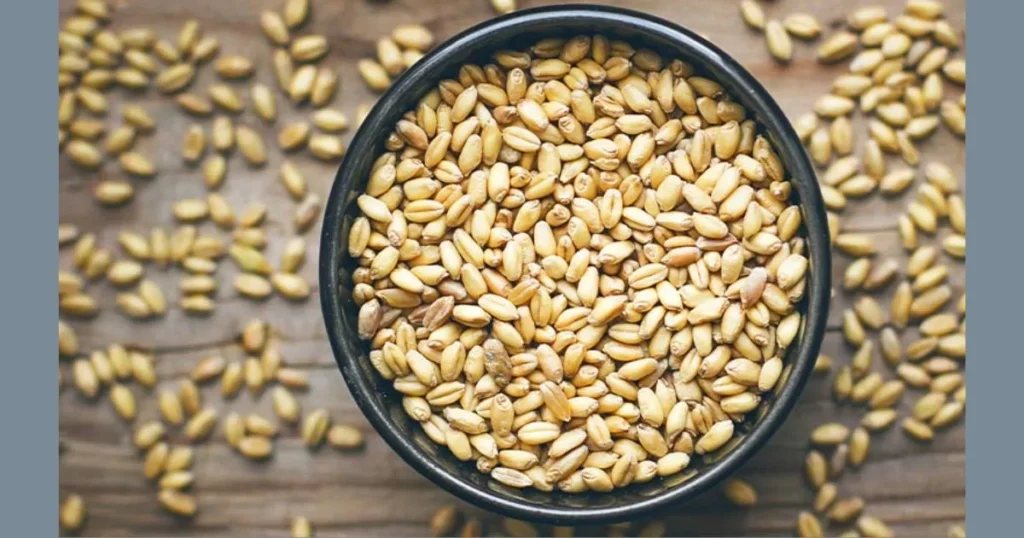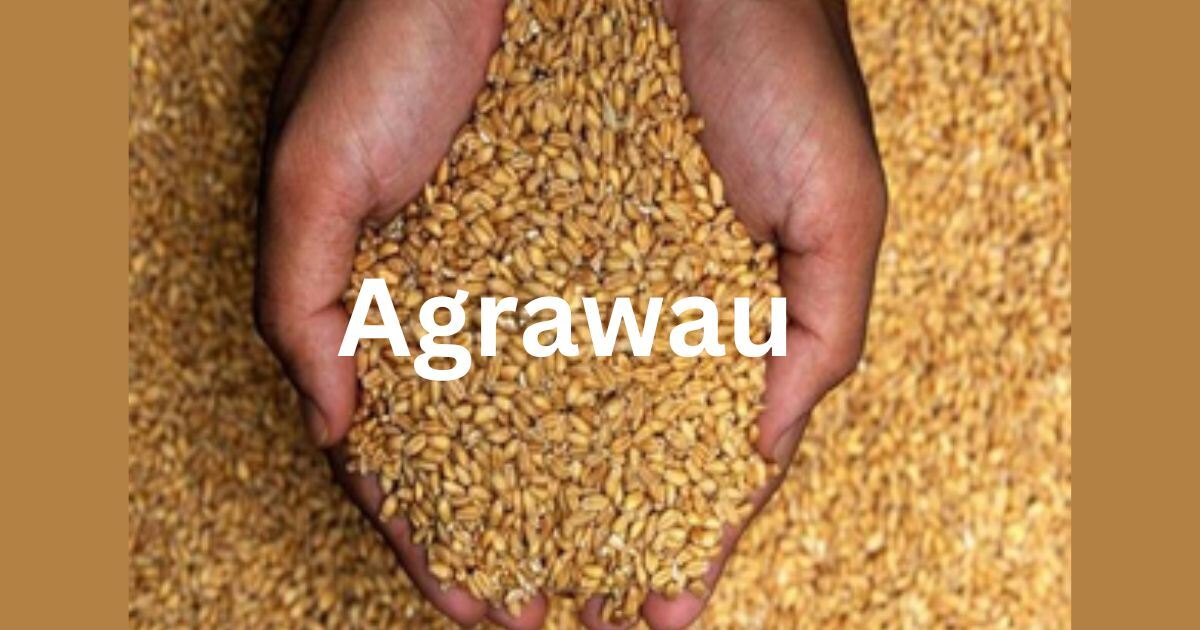Ever wondered about the Agrawau community and their impact on society? Let’s dive into their fascinating world, from ancient roots to modern-day influence.
The Agrawau, often known as Agrawal, have a rich tapestry of history, culture, and business acumen. They’ve shaped economies, preserved traditions, and left an indelible mark on the global stage. But what’s their story? How have they managed to stay relevant in our fast-paced world?
The Origins of Agrawau
Picture this: an ancient city called Agroha, bustling with trade and commerce. At its helm? The legendary King Agrasena. This is where our story begins.
The Agrawau community traces its roots back to this vibrant hub. Legend has it that King Agrasena wasn’t your run-of-the-mill ruler. He championed equality, prosperity, and compassion. His “one brick, one coin” philosophy? It wasn’t just talk. It laid the foundation for a community that valued collective welfare.
But here’s the kicker: Agrasena’s legacy wasn’t just about sharing wealth. It was about creating it. He fostered an environment where trade flourished, setting the stage for generations of savvy business minds.
Cultural and Religious Practices of Agrawau
Now, let’s talk culture. Ever tried to pin down Agrawau traditions? It’s like trying to catch a chameleon – always adapting, yet staying true to its core.
Hinduism and Jainism? They’re not just religions for many Agrawaus. They’re a way of life. Non-violence, charity, respect for all living beings – these aren’t just fancy words. They’re the real deal, shaping daily decisions and business ethics.
Vegetarianism? It’s common, but not universal. Festivals like Diwali and Holi? They’re not just about lights and colors. They’re family reunions, cultural touchstones, and a chance to reconnect with roots.
Marriage in the Agrawau community? It’s not just about two people. It’s about two families, two legacies coming together. Preserving cultural heritage? It’s not a choice. It’s a responsibility passed down through generations.
The Role of Agrawau in Business and Trade

Let’s cut to the chase. When you hear “Agrawau,” think “business.” It’s in their DNA.
From ancient trade routes to modern stock exchanges, Agrawaus have been there, done that. But here’s the thing: it’s not just about making money. It’s about making a mark.
Ethical business practices? Check. Integrity? Double-check. Hard work? Triple-check. It’s this trifecta that’s built their reputation as reliable entrepreneurs.
Today, you’ll find Agrawals heading multinational corporations, founding startups, and driving innovation across industries. But guess what? They’re still guided by those age-old principles of fair trade and community welfare.
The Modern Agrawau: Challenges and Opportunities
Fast forward to today. The world’s changed, and so have the Agrawaus. But change brings challenges, right?
Education? It’s not just valued; it’s revered. You’ll find Agrawals acing exams in finance, engineering, law – you name it. But here’s the twist: they’re not abandoning their business roots. They’re expanding them.
The global economy? It’s a whole new ball game. Technology’s evolving at breakneck speed. Consumer demands? They’re shifting like sand dunes. But here’s where the Agrawau spirit shines. They’re not just adapting; they’re thriving.
Take Aditya Agrawal, for instance. He’s not just running a tech startup. He’s revolutionizing how small businesses access credit. Or consider Ritu Agrawal, who’s blending traditional Ayurvedic practices with modern wellness trends. These aren’t just success stories; they’re testaments to the Agrawau ability to evolve while staying true to their roots.
Philanthropy and Social Contributions
Remember King Agrasena’s “one brick, one coin” philosophy? It’s alive and kicking.
Agrawau philanthropy isn’t about writing checks. It’s about making a difference. From building schools in remote villages to funding cutting-edge medical research, they’re walking the talk.
Take the Agrawal Foundation in Mumbai. They’re not just providing scholarships. They’re mentoring first-generation learners, breaking the cycle of poverty. Or look at the Agroha Vikas Trust. They’re not just preserving heritage; they’re creating sustainable livelihoods in their ancestral town.
But it’s not all about grand gestures. Many Agrawaus practice quiet charity, embodying the principle of “gupt daan” or anonymous giving. It’s not about recognition; it’s about responsibility.
Agrawau Around the World

The Agrawau story isn’t confined to India. It’s global.
From New York to London, Sydney to Toronto, Agrawaus are making their mark. But here’s the interesting part: they’re not just succeeding; they’re contributing.
In the US, Agrawau professionals are driving innovation in Silicon Valley. In the UK, they’re shaping financial policies in the City of London. In Australia, they’re pioneering sustainable business practices.
But it’s not all work and no play. Agrawau associations worldwide are keeping cultural ties strong. From Diwali celebrations in Times Square to Holi festivals in Trafalgar Square, they’re sharing their heritage with the world.
The Agrawau Legacy: Lessons for Modern Business
So, what can we learn from the Agrawau journey?
Adaptability is key. The Agrawaus have thrived through centuries of change. How? By staying flexible while holding onto core values.
Ethical business isn’t just good karma; it’s good strategy. The Agrawau reputation for fair dealing has opened doors across the globe.
Community matters. In an age of individualism, the Agrawau emphasis on collective welfare offers a refreshing perspective.
Innovation and tradition can coexist. The Agrawaus have shown that you can embrace the new without discarding the old.
Read Also: FintechZoom IBM Stock Price History, Trend, And Forecast
The Agrawau Influence on Modern Entrepreneurship
Let’s talk business, shall we? The Agrawau influence isn’t just history; it’s shaping the future of entrepreneurship.
Take startup culture, for instance. The Agrawau principle of calculated risk-taking? It’s like it was tailor-made for the startup world. Many Agrawau entrepreneurs are now venture capitalists, funding the next big ideas.
But here’s the twist: they’re not just chasing profits. They’re looking for sustainable, socially responsible ventures. It’s like they’re bringing their ancestral wisdom to Silicon Valley.
Consider Vijay Agarwal, who’s not just investing in tech startups. He’s mentoring young entrepreneurs, teaching them the fine balance between innovation and ethics. It’s not just about creating unicorns; it’s about nurturing responsible business leaders.
Agrawau Women: Breaking Barriers and Setting Trends
Now, let’s shine a spotlight on the Agrawau women. They’re not just breaking glass ceilings; they’re shattering stereotypes.
Traditionally, Agrawau women were the backbone of the family, managing households with the same acumen their husbands applied to business. But today? They’re front and center in the business world.
Take Roshni Agarwal, for example. She’s not just heading a multinational corporation; she’s advocating for gender equality in boardrooms. Or look at Priya Agrawal, who’s revolutionizing rural healthcare with her med-tech startup.
These women aren’t just succeeding; they’re changing the narrative. They’re proving that Agrawau business acumen isn’t gender-specific. It’s a family trait.
The Agrawau Approach to Education

Education in the Agrawau community isn’t just about degrees; it’s about life-long learning.
Sure, you’ll find Agrawaus in top universities worldwide. But here’s the interesting part: many are combining traditional degrees with entrepreneurial ventures.
Take the Agrawal Education Foundation. They’re not just providing scholarships. They’re creating a new model of education that blends academic knowledge with practical business skills.
It’s not uncommon to find Agrawau students running successful side hustles while acing their exams. It’s like they’re getting two educations for the price of one.
Agrawau and Sustainable Business Practices
In a world grappling with climate change, the Agrawau community is stepping up to the plate.
Remember those Jain principles of non-violence and respect for all living beings? They’re translating into sustainable business practices.
Many Agrawau-led companies are at the forefront of the green revolution. From solar energy startups to eco-friendly textile manufacturing, they’re proving that profit and planet can coexist.
Take Anil Agarwal’s recycling empire. He’s not just making money from waste; he’s cleaning up cities and creating jobs. It’s like he’s taken the Agrawau principle of resource optimization to a whole new level.
The Agrawau Network: A Global Business Ecosystem
Here’s something fascinating about the Agrawau community: their global network.
It’s not just about family ties or cultural connections. It’s a vast, intricate business ecosystem that spans continents.
An Agrawau trader in India might source products from an Agrawau manufacturer in China, finance it through an Agrawau-owned bank in London, and sell it to an Agrawau distributor in the US. It’s like a global game of business chess, with moves planned generations in advance.
But here’s the kicker: this network isn’t exclusive. It’s open to anyone who shares their values of trust, integrity, and mutual growth.
Preserving Heritage in a Digital Age
In this age of Instagram and TikTok, how do you keep centuries-old traditions alive? The Agrawau community has found some innovative answers.
Digital archives of family histories, virtual tours of ancestral towns, online courses in traditional Agrawau cuisine – they’re using technology to bridge the gap between generations.
But it’s not all digital. Many Agrawau families still maintain haveli (ancestral homes) in places like Shekhawati, Rajasthan. These aren’t just buildings; they’re living museums, telling the story of Agrawau heritage through their intricate frescoes and architecture.
It’s like they’re creating a time capsule, but one that’s constantly updated and accessible to all.
The Future of Agrawau

What’s next for the Agrawau community?
Balancing tradition and modernity remains a challenge. How do you preserve cultural identity in a globalized world?
The business landscape is evolving. Can the Agrawau entrepreneurial spirit keep pace with AI, blockchain, and other emerging technologies?
Climate change is reshaping economies. How will Agrawau businesses adapt to sustainable practices?
These aren’t just Agrawau challenges. They’re global challenges. And if history is any indicator, the Agrawaus will be at the forefront of solving them.
Read Also: Adrienne Elrod Bio, Age, Husband, Net Worth
FAQ’s
What is the origin of the Agrawau community?
The Agrawau community originates from Agroha, an ancient city. They trace their lineage to King Agrasena. The name ‘Agrawal’ comes from ‘Agra’ (Agroha) and ‘wal’ (people). Agroha was a thriving trade center in northern India.
What are the religious practices followed by Agrawau?
Agrawaus primarily follow Hinduism and Jainism. They emphasize non-violence, charity, and respect for all life. Many practice vegetarianism. Festivals like Diwali and Holi are celebrated enthusiastically. Family values and cultural preservation are important.
Why is the Agrawau community known for business and trade?
Agrawaus have a long history as traders and merchants. Their entrepreneurial spirit dates back to King Agrasena’s time. They’re known for ethical business practices and hard work. Agrawaus have adapted well to changing economic landscapes. Many lead successful businesses across various industries globally.
How does the Agrawau community contribute to society?
Philanthropy is a core value in the Agrawau community. They often establish educational institutions and hospitals. Many provide scholarships and support for underprivileged students. Agrawaus contribute to various social causes and community welfare. They balance business success with social responsibility.
Conclusion
Ever heard of the Agrawau community? They’re pretty fascinating.
Picture this: an ancient Indian city called Agroha, where it all began. Fast forward to today, and Agrawaus are making waves worldwide.
They’re not just business whizzes (though they’re definitely that). They’re also big on giving back. Think schools, hospitals, the works.
Their secret sauce? A mix of old-school values and new-age thinking. Whether it’s running global companies or funding the next big startup, Agrawaus are in the thick of it.
But here’s the cool part: they’re doing it all while keeping their culture alive. Festivals, family ties, the whole nine yards.
In a nutshell, Agrawaus are proof that you can stay true to your roots while conquering the world.

Hello, I’m Harry James an author at LatestNexGen, where I delve into the latest trends across Tech, Lifestyle, Business, Sports, News, Science, and Fitness. My articles provide insightful and engaging content, adeptly simplifying complex ideas for a broad audience. Follow me on LatestNexGen.com for fresh perspectives and updates on the most current and relevant topics.

